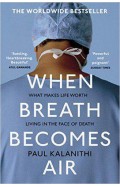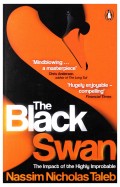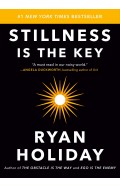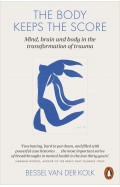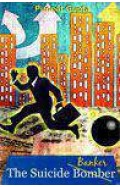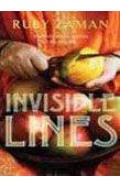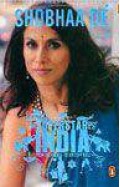- Home
- Book Bazaar Upto 80% Off
- White Fragility: Why It's So Hard for White People to Talk About Racism - Paperback
White Fragility: Why It's So Hard for White People to Talk About Racism - Paperback
By: Robin DiAngelo
-
Rs 1,345.50
- Rs 1,495.00
- 10%
You save Rs 149.50.
Due to constant currency fluctuation, prices are subject to change with or without notice.
Anger. Fear. Guilt. Denial. Silence. These are the ways in which ordinary white people react when it is pointed out to them that they have done or said something that has - unintentionally - caused racial offence or hurt. But these reactions only serve to silence people of colour, who cannot give honest feedback to 'liberal' white people lest they provoke a dangerous emotional reaction.
Robin DiAngelo coined the term 'White Fragility' in 2011 to describe this process and is here to show us how it serves to uphold the system of white supremacy. Using knowledge and insight gained over decades of running racial awareness workshops and working on this idea as a Professor of Whiteness Studies, she shows us how we can start having more honest conversations, listen to each other better and react to feedback with grace and humility. It is not enough to simply hold abstract progressive views and condemn the obvious racists on social media - change starts with us all at a practical, granular level, and it is time for all white people to take responsibility for relinquishing their own racial supremacy.
'With clarity and compassion, DiAngelo allows us to understand racism as a practice not restricted to "bad people." In doing so, she moves our national discussions forward. This is a necessary book for all people invested in societal change' Claudia Rankine
'An important book' Nikesh Shukla
'By turns mordant and then inspirational, an argument that powerful forces and tragic histories stack the deck fully against racial justice alongside one that we need only to be clearer, try harder, and do better' David Roediger, Los Angeles Review of Books
'The value in White Fragility lies in its methodical, irrefutable exposure of racism in thought and action, and its call for humility and vigilance' Katy Waldman, New Yorker
'A vital, necessary, and beautiful book' Michael Eric Dyson
Anger. Fear. Guilt. Denial. Silence. These are the ways in which ordinary white people react when it is pointed out to them that they have done or said something that has - unintentionally - caused racial offence or hurt. But these reactions only serve to silence people of colour, who cannot give honest feedback to 'liberal' white people lest they provoke a dangerous emotional reaction.
Robin DiAngelo coined the term 'White Fragility' in 2011 to describe this process and is here to show us how it serves to uphold the system of white supremacy. Using knowledge and insight gained over decades of running racial awareness workshops and working on this idea as a Professor of Whiteness Studies, she shows us how we can start having more honest conversations, listen to each other better and react to feedback with grace and humility. It is not enough to simply hold abstract progressive views and condemn the obvious racists on social media - change starts with us all at a practical, granular level, and it is time for all white people to take responsibility for relinquishing their own racial supremacy.
'With clarity and compassion, DiAngelo allows us to understand racism as a practice not restricted to "bad people." In doing so, she moves our national discussions forward. This is a necessary book for all people invested in societal change' Claudia Rankine
'An important book' Nikesh Shukla
'By turns mordant and then inspirational, an argument that powerful forces and tragic histories stack the deck fully against racial justice alongside one that we need only to be clearer, try harder, and do better' David Roediger, Los Angeles Review of Books
'The value in White Fragility lies in its methodical, irrefutable exposure of racism in thought and action, and its call for humility and vigilance' Katy Waldman, New Yorker
'A vital, necessary, and beautiful book' Michael Eric Dyson
White Fragility: Why It's So Hard for White People to Talk About Racism - Paperback
By: Robin DiAngelo
Rs 1,345.50 Rs 1,495.00 Ex Tax :Rs 1,345.50
Nice Racism - How Progressive White People Perpetuate Racial Harm
By: Robin DiAngelo
Rs 1,946.25 Rs 2,595.00 Ex Tax :Rs 1,946.25
Zubin Mehta: A Musical Journey (An Authorized Biography)
By: VOID - Bakhtiar K. Dadabhoy
Rs 472.50 Rs 1,050.00 Ex Tax :Rs 472.50
The Black Swan The Impact Of The Highly Improbable
By: Nassim Nicholas Taleb
Rs 2,965.50 Rs 3,295.00 Ex Tax :Rs 2,965.50
The Body Keeps The Score: Mind, Brain And Body In The Transformation Of Trauma
By: Bessel van der Kolk
Rs 3,295.00 Ex Tax :Rs 3,295.00
Manning Up: How the Rise of Women Has Turned Men into Boys
By: Kay Hymowitz
Rs 646.75 Rs 995.00 Ex Tax :Rs 646.75
The Black Swan The Impact Of The Highly Improbable
By: Nassim Nicholas Taleb
Rs 2,965.50 Rs 3,295.00 Ex Tax :Rs 2,965.50
The Body Keeps The Score: Mind, Brain And Body In The Transformation Of Trauma
By: Bessel van der Kolk
Rs 3,295.00 Ex Tax :Rs 3,295.00
No recently viewed books available at the moment.
Zubin Mehta: A Musical Journey (An Authorized Biography)
By: VOID - Bakhtiar K. Dadabhoy
Rs 472.50 Rs 1,050.00 Ex Tax :Rs 472.50
White Fragility: Why It's So Hard for White People to Talk About Racism - Paperback
By: Robin DiAngelo
Rs 1,345.50 Rs 1,495.00 Ex Tax :Rs 1,345.50
Nice Racism - How Progressive White People Perpetuate Racial Harm
By: Robin DiAngelo
Rs 1,946.25 Rs 2,595.00 Ex Tax :Rs 1,946.25
The Black Swan The Impact Of The Highly Improbable
By: Nassim Nicholas Taleb
Rs 2,965.50 Rs 3,295.00 Ex Tax :Rs 2,965.50
The Body Keeps The Score: Mind, Brain And Body In The Transformation Of Trauma
By: Bessel van der Kolk
Rs 3,295.00 Ex Tax :Rs 3,295.00












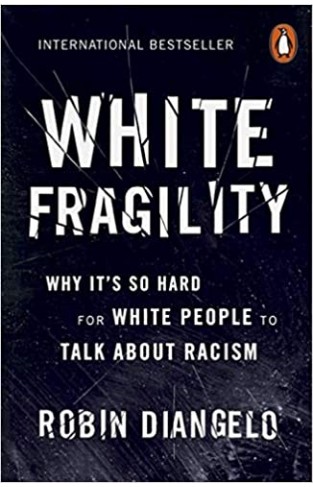
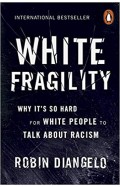
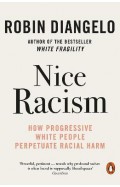
-120x187.jpg?q6)






